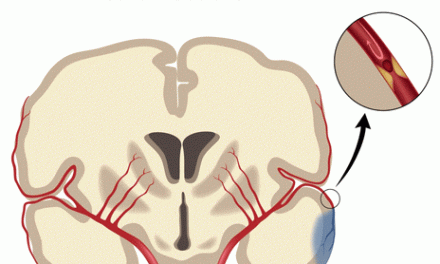According to a recent study, colds and other minor infections may temporarily raise stroke risk in children. The study was reportedly led by researchers at the University of California, San Francisco (USF) Benioff Children’s Hospital San Francisco in collaboration with the Kaiser Permanente Division of Research.
“These findings suggest that infection has a powerful but short-lived effect on stroke risk,” emphasizes Heather Fullerton, MD, senior study author, pediatric vascular neurologist and medical director of the Pediatric Brain Center at UCSF Benioff Children’s Hospital San Francisco. Fullerton adds that the infections may be acting as a trigger in children who are likely predisposed to stroke.
A news release issued by USF states that during the study, researchers reviewed a Kaiser Permanente database of 2.5 million children and pinpointed 102 children who had sustained ischemic stroke without major infection, such as meningitis or sepsis. Next, the researchers compared them to 306 children without stroke.
Medical records for the group of children who had sustained a stroke were reviewed for minor infections up to 2 years prior to their strokes. The results suggest that the risk of stroke was increased within a 3-day time frame, which researchers explain reflects a period of acute inflammation. Once the infection resolves, the inflammation decreases and therefore stroke risk does as well, the release says.
The release notes that a total of 10 out of 102 children who had sustained a stroke had a doctor visit for an infection within 3 days of stroke, or 9.8%, while two out of the 306 control participants or 0.7% had an infection during the same time period. The study indicates that children who sustained strokes were 12 times more likely to have had an infection with the previous 3 days than the children without strokes. The total number of infections over a 2-year period was not linked to increased stroke risk, researchers say. Around 80% of the minor infections spotlighted by researchers were upper respiratory, the release states.
Fullerton adds that taking steps to prevent infection, such as vaccinations, good hand washing, and covering the mouth when sneezing to protect children is key, “but it’s especially important to help prevent stroke in someone who is otherwise predisposed.”
Source: University of California, San Francisco




